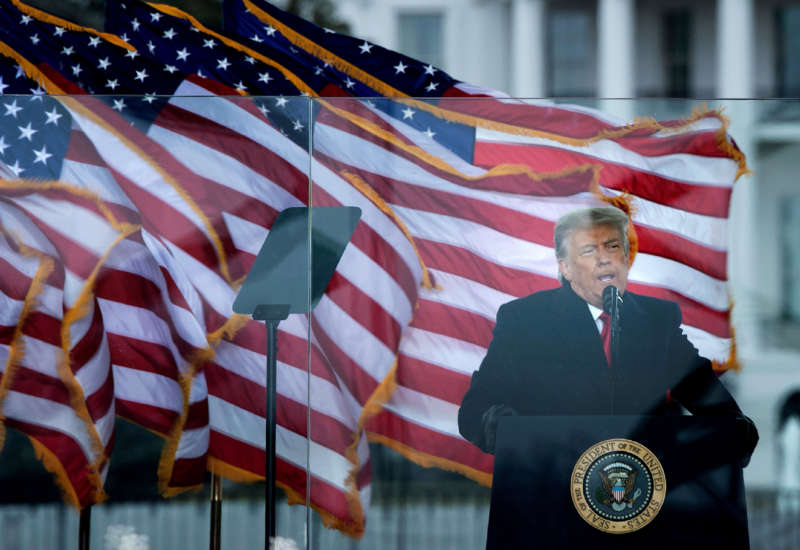On Monday, a federal judge rejected several assertions from a lawyer for Donald Trump, and questioned whether the former president’s inaction during the January 6 Capitol attack amounted to an endorsement of the violence that took place that day.
U.S. District Judge Amit Mehta for the District of Columbia did not indicate how he plans to rule on a number of civil lawsuits where plaintiffs – including several members of Congress and Capitol Police officers – allege that Trump and many of his allies were responsible for the Capitol attack. But during the hearing, Mehta did push back against a number of claims made by Trump’s lawyer, Jesse Binnall.
Binnall antagonized Mehta, suggesting that the federal judge was inherently biased and unable to rule impartially because he was appointed by former President Barack Obama. (Such an accusation is generally regarded as a major faux pas in legal circles.)
“To suggest that I will treat the former president differently because of his party is simply inappropriate,” Mehta responded.
Mehta also inquired why the former president didn’t do more to stop the violence that was being carried out in his name on January 6, 2021.
“[Why] didn’t Trump denounce the conduct immediately?” Mehta asked.
“You have an almost two-hour window where the President does not say, ‘Stop, get out of the Capitol. This is not what I wanted you to do,’” Mehta said, adding:
What do I do about the fact the President didn’t denounce the conduct immediately … and sent a tweet that arguably exacerbated things? Isn’t that, from a plausibility standpoint, that the President plausibly agreed with the conduct of the people inside the Capitol that day?
In response, Binnall suggested that Trump couldn’t be held responsible for what he didn’t say. “The president cannot be subject to judicial action for any sort of damages for failing to do something,” Binnall said.
Mehta then rejected Binnall’s argument that Trump’s words preceding the violence were protected by his presidential privileges, noting previous Supreme Court rulings that indicate that Trump’s speech on January 6 was not protected by those standards.
Later, when Binnall claimed that Trump had encouraged his loyalists to be peaceful, Mehta pointed out that the lawyer was purposefully overlooking incendiary statements from the former president that seemed to encourage violence.
“You would have me ignore what [Trump] said in its entirety?” Mehta asked.
“Let’s stick with the facts,” he added.
Recent reporting has revealed that Trump didn’t want to tell his loyalists to act “peacefully” after they breached the Capitol. According to a former aide who spoke out last week, Trump was reluctant to include the message in a tweet to his followers as the attack was unfolding. In a video hours after the attack began, Trump again failed to condemn the actions of his loyalists at the Capitol, and instead told his followers that he “loved” them.
The lawsuits being discussed in the hearing on Monday allege that Trump’s words before the Capitol attack were directly responsible for the violence that followed. In addition to peddling lies about election fraud — including wrongly alleging that the election was “stolen … by emboldened radical left Democrats” and “the fake news media” — Trump told his loyalists that they’d “never take back our country with weakness,” and encouraged them to go to the Capitol as Congress was certifying the results of the presidential race.
“We fight like hell. And if you don’t fight like hell, you’re not going to have a country anymore,” Trump went on.
Following the January 6 Capitol attack, many of Trump’s loyalists said the former president’s words moved them to breach the Capitol, a point that will likely come up during other hearings related to the three lawsuits.


